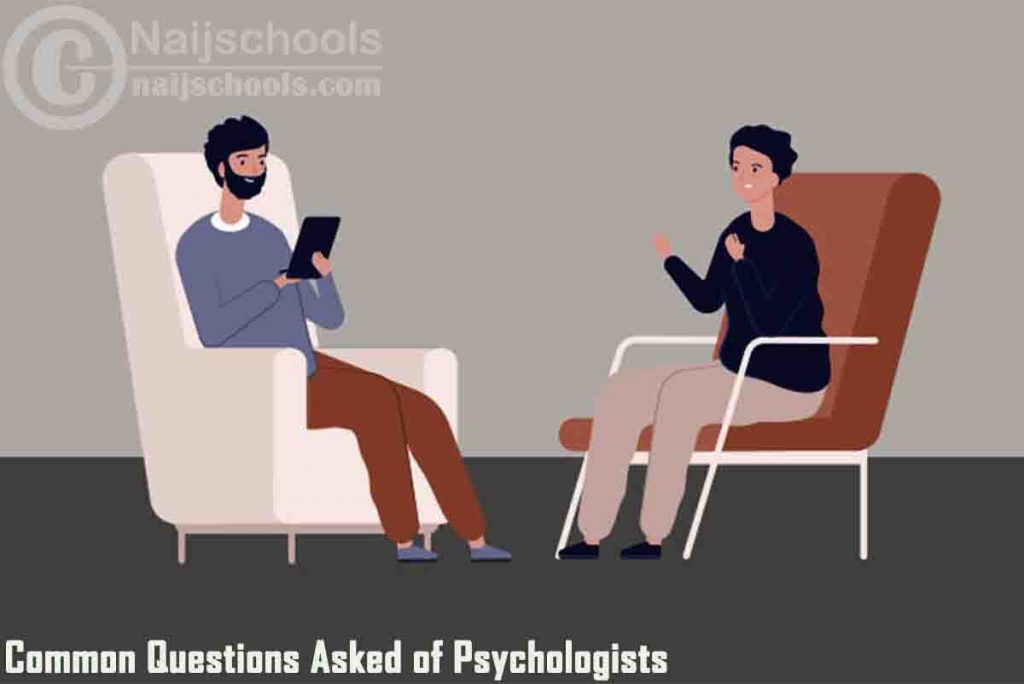Are You among the Certified Psychologists in Your Country and are wondering why people keep asking You the same questions over and over again? If Yes, this article has all common questions asked of Psychologists and brief explanations of why You encounter them.

The human mind is a puzzle wrapped in an enigma stuffed inside a mystery box. Though the brain is undeniably one of humanity’s greatest tools. It remains one of the least studied and understood of the body’s systems. Yeah, to the extent that psychologists still have much to learn about why people do what they do.
Anyone interested in contributing to psychology research needs to pursue at least an online Masters in Psychology. Which provides a firm foundation in the theory and concepts that inform the field.
These Are the Common Questions People Ask Psychologists
Yet, even before graduating, psychology students are likely to encounter some of the following questions. Yeah, those outside the field of Psychology are constantly asking Psychologists:
Is ESP Real?
ESP stands for Extrasensory Perception. It is a term commonly used to describe a nebulous “sixth sense” that many people purport to have. But that has yet to be proven by any kind of science. For some, ESP is some form of telepathy or telekinesis; for others, it is some kind of precognition or clairvoyance.
In any case, ESP seems like magic, but because many people claim to experience ESP regularly. Many are eager for psychologists to find any indications of its reality.
Unfortunately, psychology studies on ESP have been less than methodologically rigorous. Most psychologists chalk ESP up to some individuals’ extraordinary powers of perception. Which allows them to make deductions on exceedingly subtle information. For now, the field of psychology largely believes that ESP does not exist.
What Are Dreams?
This is among the common questions asked of Psychologists, as dreams can be inspirational, terrifying, confusing, satisfying and anything in between. But, what are they? Throughout the history of psychology, different psychologists have proposed different theories.
For example, Freud argued that dreams represent unconscious wishes that one is afraid to express while awake. However, Freud’s theory is all but debunked by modern psychology.
There are a few different hypotheses about the nature of dreams that are supported by ongoing research. These include:
- Activation-synthesis hypothesis, suggests that the brain fires random electrical impulses while sleeping that are joined into a cohesive narrative upon waking.
- The self-organization model purports that the brain reviews its daily experiences during sleep and in doing so triggers dreams.
- Creativity theory, supposedly allows the brain to tap into its limitless potential for problem-solving during sleep to think creatively without the constraints of the real world.
- Primitive instinct rehearsal and adaptive strategy theories involve the brain practising responding to various experiences to be better prepared for acting in real life.
- Emotional regulation dream theory indicates that dreams are safe spaces for the mind to explore emotions and trauma.
“How Can I Motivate Myself?” This is One of the Most Common Questions People Ask Psychologists
Most everyone longs for a more effective way to motivate themselves toward accomplishing their goals. Psychologists have discovered two types of motivation, intrinsic and extrinsic, which are essential for helping people focus on reaching certain milestones and achieving success.
\Intrinsic motivation is the inherent satisfaction that one feels from working toward one’s goals; extrinsic motivation is a reward that one earns as a result of one’s effort.
Psychology suggests that individuals should give themselves extrinsic motivation in the form of small gifts and experiences as they work, and they might reward themselves with something big at the completion of a project.
For some, that might be a steak dinner, and for others, it might be a skydiving trip (as long as they prepare beforehand by reading skydiving statistics).
Can I Control My Emotions?
The depth and breadth of emotions are part of what makes the human species so unique in the animal kingdom — and yet, for many people, emotions can seem to take control, overriding logic and common sense to cause outrageous behaviour.
One needs only consider road rage statistics to recognize that emotions can be destructive, and the more control one has over them, the better.
In the past, psychologists argued for the importance of catharsis, or the release of strong emotion as a means of seeking relief from it. Historically, psychologists believed that holding back emotion was dangerous for mental and physical health.
However, new research suggests that the opposite is true: By striving to hold emotion in, individuals who often feel emotionally out of control often feel better. Emotional control takes practice, and meditation can help.
Take Away on the Above Common Questions Asked of Psychologists
Psychologists do not have all the answers about the human mind — but they do have some. With more professional psychologists studying the mind, humankind is sure to unlock more and more mysteries in the coming years.
Check Out;
- 7 of the Best Clear Reasons Why Students Fail JAMB
- How Does Technology Helps Cooking in the Kitchen Restaurant? Check Now
- Open to Know How IT Power Outages Can Cause Serious Business Damage in a Matter of Hours
